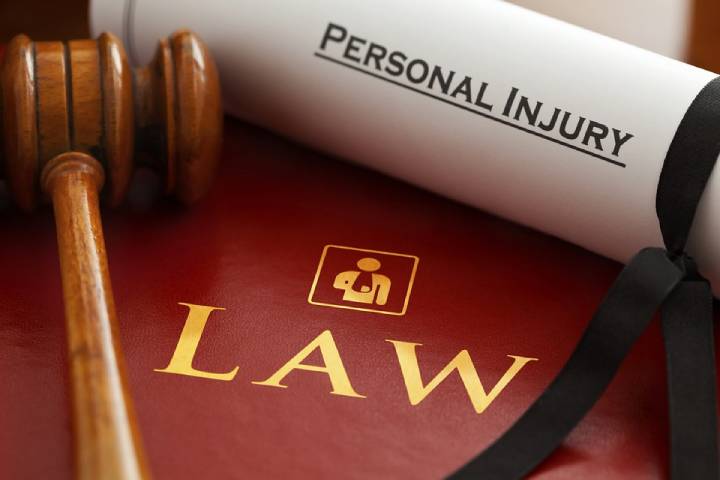Employers in Virginia are required to ensure that their employees are working in a reasonably healthy and safe environment. However, employers fail to fulfill this duty fully, causing an employee to get injured. There are also instances where an employee gets injured while working despite the employer taking all possible steps to make the workplace safe.
Injuries could include a range of things like breaking of bones, occupational illnesses, aggravation of pre-existing conditions, and psychological diseases. The Virginia labor laws protect the rights of employees that suffer work-related injuries. If you have been injured at work, here’s a breakdown of where to get your rightful compensation.
1. Report Your Injury Immediately
The familiar straightforward and numerous crucial step to protecting your rights is reporting the injury to your employer. Delaying to write your case can take away your right ever to claim compensation.
Report the damage the same day or at least within a few days since the injury occurred. Depending on the injury, prompt reporting may not always be possible; however, it’s essential that you eventually report in the soonest reasonable time.
Next, file a claim through the worker’s compensation court. Making this report is the formal notice to your employer, their insurance company, and the court. Once you have established the injury, you automatically protect all your rights to a personal injury claim.
2. What Rights Do You Have?
The rights accorded to a personal injury employee will vary from person to person depending on the facts of their situation; however, there are a few common rights across all injury claims:
- You have the right to report and file a claim in the worker’s compensation court.
- You have the right to get the services of a doctor and proceed with medical compensation.
- If the practitioner issues you to return to work, it’s within your rights to return to your job.
- If the injury or illness hinders you from returning to work, you have the right to claim one of the disability compensations. The right extends to whether the hindrance permanently or temporarily keeps you from employment.
- If you do not accept the arrangements made by your employer, their insurance company, or the worker’s compensation, it is within your rights to appeal the decision.
- You have the right to representation by an attorney throughout the process of seeking workers’ compensation.
Understanding your right to act as an employee is as important as understanding your right to refuse. You have a right to refuse some offers often presented by an employer, such as encouraging you to use your health insurance to cater for medical bills.
Offering you an incentive in attempts to persuade you not to file the compensation claim is illegal. Remember, it’s well within your right to say “no.” Laws in Virginia provide that you may pursue any worker’s compensation claim without the fear of harassment or reprisal from your employer.
If an employer makes it difficult for you to exercise your rights freely, there are severe penalties imposed on the employer by the workers’ compensation. Harassing you or making it hard for you at work is illegal if the employer’s motivation is your compensation claim.
3. When Another Party Other Than the Employer Causes the Injury
Sometimes, an injury at work may occur as a result of the negligence of a third party. For instance, it could be a manufacturer or even the designer of a piece of equipment that’s defective. It could even be the driver of a delivery truck.
When you get injured at work due to a third party’s negligence, you may still have a right to put up a claim against the entity or person. The claim will, however, become a “third party claim.” The difference is that such a claim will not go under the worker’s compensation but instead take up a civil suit.
Civil lawsuits in work-related injuries typically help you seek additional personal injury damages otherwise not recoverable under the worker’s compensation claims. For instance, the worker’s compensation claim typically reimburses you for lost wages and medical expenses; you cannot seek compensation for suffering and pain. In third-party personal injury claims, you are allowed to seek compensation for physical and even non-economic damages.
4. Get an Attorney for Your Injury Claims
Getting an injury and claiming compensation isn’t a win-win situation. There are complex facts that need to prove to protect people from individuals who want to take advantage of personal injury claims. Naturally, merely stating your facts may not be enough.
Expect the third party to use lawyers to contest the claim or reduce your claim value. Their attorneys will use the facts you give and twist them to appear like the liability was not their clients. Therefore, you must seek the counsel of a Virginia law firm that specifically deals with personal injury cases.
An experienced personal injury attorney will work through all the facts of your case and ensure you get the maximum compensation, including the non-economic ones.
5. Don’t Be Afraid to File a Claim.
Whether you were injured at work due to the employer’s negligence, developed a work-related illness, or got damaged due to a third party’s negligence, you still have a right to claim compensation. Understand that no claim is too small nor insignificant to claim.
Severe injuries can be catastrophic, and some could even change your life. A change that affects your life psychologically or even affects your financial capability rightly deserves compensation. Many employees often face the fear of presenting their bosses with their claim; remember that is why your employer or any other third party gets insurance.
Finally, healing from injuries is also a journey. Taking up a lawsuit while recuperating might be too much for yourself; highly consider hiring an attorney. An attorney not only raises your chances of winning but also relieves you of the claim’s stresses. Remember that you’re protected from your employer firing you or making any threat; therefore, claim what is rightfully yours.
Tech Trends
Related posts
Leave a Reply Cancel reply
Hot Topics
Categories
- Ads (5)
- Animes (25)
- Artificial Intelligence (AI) (35)
- Augmented Reality (AR) (10)
- Automotive (9)
- Bitcoin (16)
- Blockchain (24)
- Business (244)
- Business Intelligence (3)
- Cloud Computing (23)
- Computer (128)
- Concrete Technology (1)
- Cryptocurrency (10)
- Cybersecurity (42)
- Data Science (9)
- Database (4)
- DevOps (6)
- Digital Marketing (76)
- Digital Workplace (14)
- Ecommerce (1)
- Education (28)
- Electric Vehicle (EV) (1)
- Electronics & Hardware (17)
- Entertainment (42)
- Fabrication (3)
- FAQ's (1)
- Finance & Marketing (47)
- Gadgets (35)
- Games (8)
- Gear (29)
- HTTPS (1)
- Industry (46)
- Information Technology (90)
- Internet (413)
- Internet of Things (IoT) (41)
- Job (25)
- Machine Learning (6)
- Marketing (92)
- Mobile Apps (21)
- Movies (11)
- Natural Language Processing (6)
- News & Trends (109)
- Programming (4)
- Science & Technology (235)
- Security (81)
- SEO (56)
- Services (36)
- Social Media (73)
- Software (99)
- Sports (1)
- Technology (306)
- Telecom (6)
- TikTok (5)
- Tours & Travels (9)
- Uncategorized (11)
- Virtual Reality (VR) (7)
- VoIP (4)
- Web Technology (42)
- Workforce (17)
- Workspace (6)



Stay connected